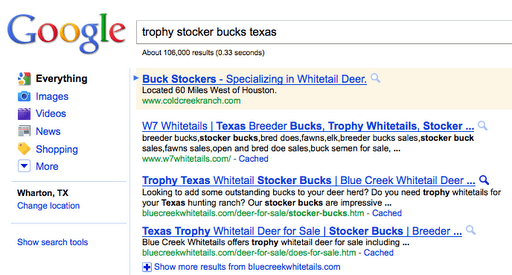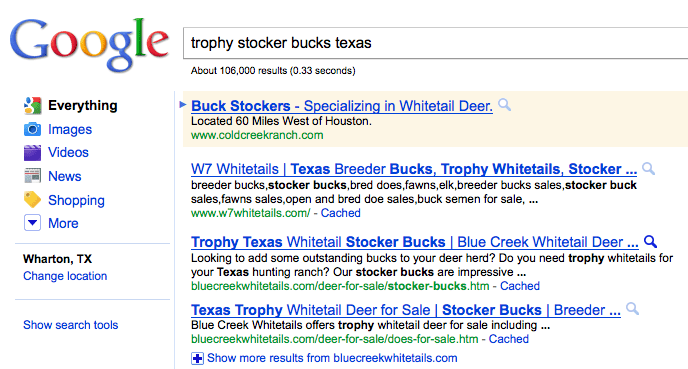Most small business owners have come to realize that their search engine optimization, or SEO, ranking on Yahoo, Bing and Google will determine how many potential customers visit their websites and their businesses. At one time, most small business owners used their websites as online brochures to provide additional information to potential customers, who were guided to these websites by print advertising, Yellow Pages listings, or other traditional advertising media. In those days, small business owners planned to spend thousands of dollars each year for Yellow Pages listings, and those listings worked.
Now they don’t work and small business owners are looking for better ways to use the Internet to attract customers. SEO techniques, applied to your websites, for Google, Yahoo, and Bing, can get your business the customer exposure you’ve lost with the Yellow Pages over the last ten years. SEO can ensure that your business website appears at the top of search engine results listings for the primary search phrase keywords associated with your business. Here’s an example for a search for “trophy stocker bucks texas.”
 |
| Blue Creek Whitetails Google Listing |
Texas ranch owners looking in improving their deer herds for the fall hunting season will be looking for trophy “stocker bucks” to purchase and introduce into their herds. Some of those ranchers will use Google to find potential suppliers, and IX Brand SEO client, Blue Creek Whitetails, is well-positioned in Google results to get inquiries from interested buyers.
Basically, here’s how the SEO process should work for you:
- Assess Your Market Size. Determine whether your potential customers are located mostly in a town or city or are scattered across a state, region, the US, or the World. Your SEO rankings challenge is much tougher if you’re competing for Google rankings in Houston than if you were competing for high search rankings here in Wharton, TX, (population 9.237). High SEO rankings in the US are much tougher than high rankings in Houston. You can expect to pay more and devote more effort to rank well in larger markets.
- Do Keyword Research. Find the keywords that your clients are using to find businesses like yours. You can get a head start on this by using Google’s free keyword research tools, but I strongly advise you to hire a professional to do your keyword research. You’ll be wasting your time if you optimize your website for keywords not used by your potential customers.
- Optimize Your Website for Your Keywords. This involves using your keywords in a smart way to highlight the information on your website and make it easy for search engines to categorize your website as being relevant to your best keywords.
- Add Relevant Information to Your Website. Google and the other search engines always try to give the highest rankings to the websites with “trusted” information applicable to the keywords used in the search. If your website provides very little information or if the information you provide is mostly “sales speak” that no one searches for, you’ll never rank well against meaningful competition.
- Build Links to Your Website. If your website provides useful, trusted information, then other websites will link to yours. Google, Yahoo, and Bing use the number of “quality” inbound links to assess the reputation of websites. If two nearly identical websites are competing for a high search ranking, the winning website will be the one with the highest number of good inbound links from relevant websites.
If you’d like a free, no-obligation, IX Brand SEO diagnostic audit of your business, please contact us using the information in the right column.
